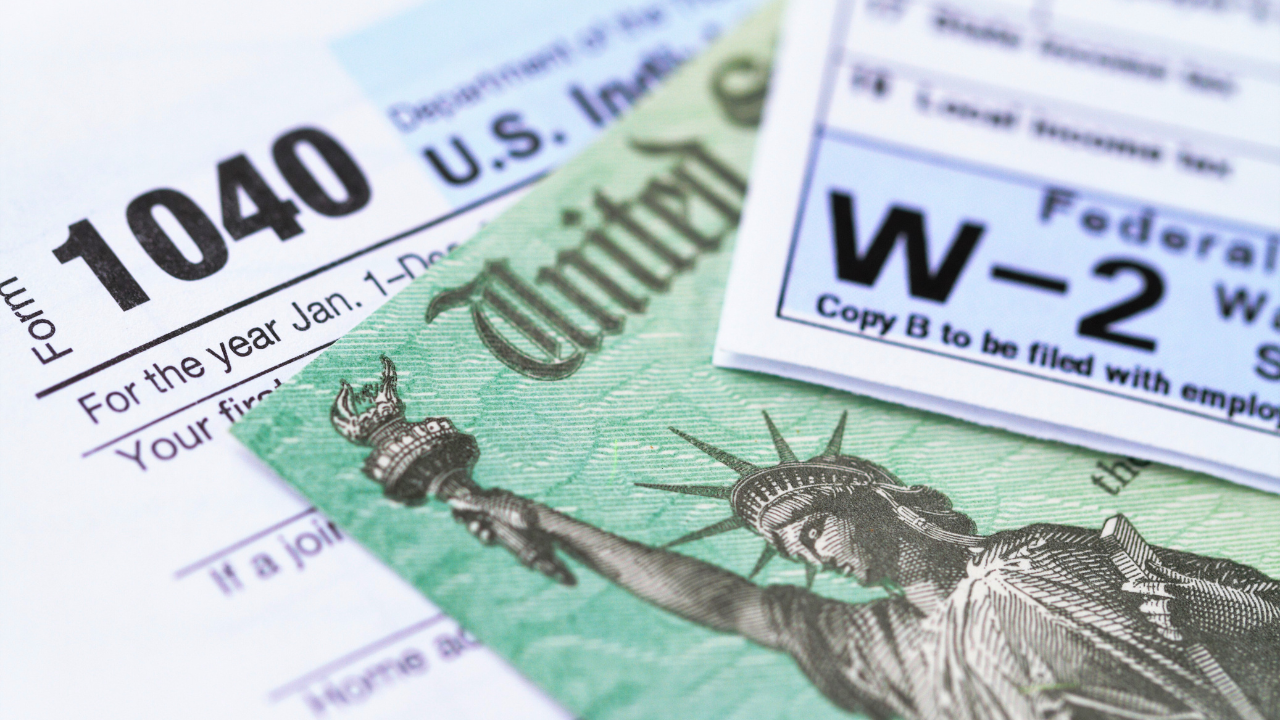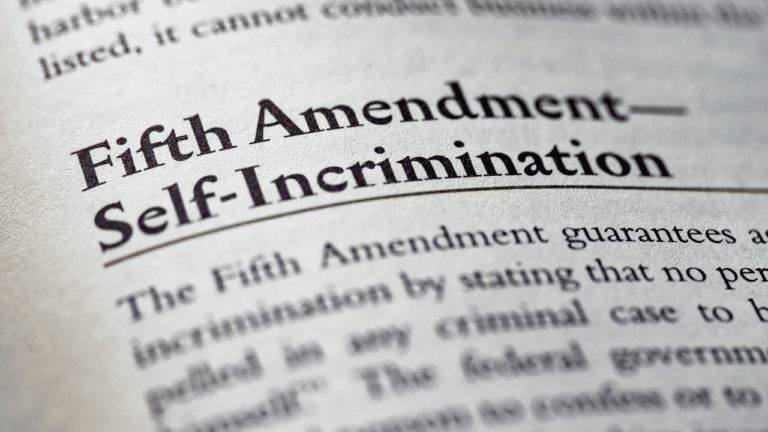The Sixteenth Amendment to the Constitution of the United States allows United States Congress to levy income tax in the United States without apportioning it among the States according to population. The Constitutional Amendment was adopted to overrule the Supreme Court ruling in Pollock v. Farmers’ Loan & Trust 157 U.S. 429 (1895) declaring the federal income tax system unconstitutional. Ratified on February 3, 1913, the Sixteenth Amendment formed a foundational component of the U.S. tax system and led to a significant expansion of the federal government’s power to collect revenue.
What is the Sixteenth Amendment in Simple Terms?
The Sixteenth Amendment provides the government with the legal authority to collect federal income taxes without distributing or allotting them among the states according to population.
WHAT IS THE TEXT OF THE SIXTEENTH AMENDMENT TO THE UNITED STATES CONSTITUTION?
U.S. Const. Amend. XVI. INCOME TAX.
The Congress shall have power to lay and collect taxes on incomes, from whatever source derived, without apportionment among the several States, and without regard to any census or enumeration.
WHAT IS THE HISTORICAL BACKGROUND OF THE SIXTEENTH AMENDMENT TO THE UNITED STATES CONSTITUTION?
Prior to 1913, the majority of federal revenue came from custom duties (tariffs) as opposed to taxes, though Congress had often imposed excise taxes on certain goods such as whiskey, tobacco, and refined sugar. In order to fund Union efforts in the American Civil War, Congress implemented the first income tax legislation in The Revenue Act of 1861. This Tax imposed a 3 percent flat rate tax on incomes over $800 but was repealed one year later by the Revenue Act of 1862, which replaced the flat tax with a progressive tax scale of 3 percent on incomes over $600 and 5 percent on incomes over $10,000. The Civil War Income Taxes, signed into effect by United States President Abraham Lincoln, expired in 1872. By this time, the tax structure had garnered much appeal across the country and many political parties advocated for a federal graduated income tax in the years that followed.
These growing overtures culminated in the Wilson-Gorman Tariff Act of 1894, which imposed a 2 percent tax on incomes over $4,000. The Tax met much fanfare across the South but was derided as ‘un-democratic” and as “communism ” in other parts of the country. “Mr. Cockran’s Final Effort,” New York Times, January 31, 1894.
In Pollock v. Farmers’ Loan & Trust 157 U.S. 429 (1895) the Supreme Court of the United States struck down the income tax provisions of the Wilson-Gorman Tariff Act as an unapportioned direct tax in violation of Article I, § 2 and § 9 of the Constitution of the United States. The 5-4 majority opinion declared that the United States Congress could only impose such a tax by apportionment according to population. In the dissent, joined by Justice John Marshall Harlan among other justices, Justice Edward Douglass White eloquently defended the government’s inherent plenary power of taxation:
It is, I submit, greatly to be deplored that after more than 100 years of our national existence, after the government has withstood the strain of foreign wars and the dread ordeal of civil strife, and its people have become united and powerful, this court should consider itself compelled to go back to a long repudiated and rejected theory of constitution, by which the government is deprived of an inherent attribute of its being – a necessary power of taxation.
Congress grew wary of passing any subsequent income tax laws in the years that followed over fears any such law would again be voided in the courts. United States President William Howard Taft first proposed an income tax constitutional amendment in a congressional address on June 16, 1909. Senator Norris Brown of Nebraska proposed the amendment in congress (United States Senate and United States House of Representatives) where it became part of the debate over the 1909 Payne-Aldrich Tariff Act. The resolution proposing the Sixteenth Amendment was passed by the United States Congress on July 12, 1909. While support for the constitutional amendment varied across the country, many progressive era Republicans, including Theodore Roosevelt, viewed it as a means to grow a modern military and an effective centralized government in the face of growing powers in Japan and Europe.
The Sixteenth Amendment text was thus proposed to the legislatures of the several States by the Sixty-first Congress (United States Senate and United States House of Representatives), on July 12, 1909. On February 25, 1913, in a proclamation of the Secretary of State Philander Knox, it was declared to have been ratified by the legislatures of thirty-six of the fourty-eight States: Alabama on August 10, 1909; Kentucky on February 8, 1910; South Carolina on February 19, 1910; Illinois on March 1, 1910; Mississippi on March 7, 1910; Oklahoma on March 10, 1910; Maryland on April 8, 1910; Georgia on August 3, 1910; Texas on August 19, 1910; Ohio on January 19, 1911; Idaho on January 20, 1911; Oregon on January 23, 1911; Washington on January 26, 1911; Montana on January 27, 1911; Indiana on January 30, 1911; California on January 31, 1911; Nevada on January 31, 1911; South Dakota on February 1, 1911; Nebraska on February 9, 1911; North Carolina on February 11, 1911, Colorado on February 15, 1911; North Dakota on February 17, 1911; Michigan on February 23, 1911; Iowa on February 24, 1911; Kansas on March 2, 1911; Missouri on March 16, 1911; Maine on March 31, 1911; Tennessee on April 7, 1911; Arkansas on April 22, 1911; Wisconsin on May 16, 1911; New York on July 12, 1911; Arizona on April 3, 1912; Minnesota on June 11, 1912; Louisiana on June 28, 1912; West Virginia on January 31, 1913; Delaware on February 3, 1913.
Ratification of the Sixteenth Amendment was complete with the ratification by the state legislature of Delaware but the amendment was subsequently ratified by New Mexico, Wyoming, New Jersey, Vermont, Massachusetts, and New Hampshire between February and March of 1913.
The Sixteenth Amendment was rejected without any subsequent ratification by the state legislatures in Connecticut, Rhode Island, Utah and Virginia. Florida and Pennsylvania never considered the constitutional amendment.
WHAT ARE THE BASIC EFFECTS OF THE SIXTEENTH AMENDMENT TO THE UNITED STATES CONSTITUTION?
The Sixteenth Amendment to the United States Constitution affected numerous practical, everyday consequences for American individuals and businesses. These effects are specifically felt daily through tax obligations, compliance requirements, financial planning, and interactions with the Internal Revenue Service (IRS) and other government agencies involved in tax administration:
Income Taxes
The most direct consequence is the imposition of federal income taxes on individuals and corporations. Income tax in the United States affects almost every working individual and business entity in the country, with taxes being withheld from paychecks and profits.
Tax filing
The need to file annual tax returns with the Internal Revenue Service (IRS) is a direct consequence of the Sixteenth Amendment. Individuals and businesses must report their income and calculate their tax liability according to the rules set forth in the tax code.
Tax Deductions and Credits
The amendment also enables various deductions and credits to reduce taxable income or offset tax liability, affecting decisions on investments, debt, purchases, and charitable contributions.
Withholding
Employers withhold taxes from employment paychecks, including federal income tax, Social Security tax, and Medicare tax, based on the information provided by employees in their W-4 forms.
Tax Planning and Compliance
Individuals and businesses engage in tax planning to minimize their tax burden and payments while remaining compliant with tax laws. This includes strategic decisions about investments, inheritance, property ownership, retirement accounts, business structures, budgets, and deductions.
Tax Enforcement
The IRS enforces compliance with the tax code, including auditing taxpayers, collecting unpaid taxes, and prosecuting tax evasion and fraud. This creates a need for record-keeping and documentation to support tax filings and tax refunds.
Government Revenue
The Sixteenth Amendment significantly increased the revenue (money) available to the federal government, enabling funding for various programs and services, including national defense, infrastructure, education, healthcare, and social welfare programs.
Economic Impact
Tax policies influenced by the Sixteenth Amendment can have broader economic implications, affecting consumer spending, investment decisions, economic growth, wealth, and income and economic inequality and poverty.
SIXTEENTH AMENDMENT TO THE UNITED STATES CONSTITUTION
The Sixteenth Amendment to the United States Constitution is the primary basis for taxation in the United States, providing Congress the power to levy an income tax without apportioning it among the states or basing it on the United States census. Prior to its ratification, federal revenue was largely generated by tariffs and excise taxes, with income taxes subject to significant limitations requiring they be apportioned among the states according to population.
The Sixteenth Amendment, thus, significantly expanded the federal government’s ability to collect revenue. The constitutional amendment has profoundly impacted the U.S. tax system, enabling the government to generate income through taxes on individuals’ earnings and corporate profits. It also established the foundation for the modern income tax system in the United States. Taxation in the United States now includes progressive tax rates, taxation on real property, and sales tax.
SIXTEENTH AMENDMENT COURT CASES
The Supreme Court of the United States has interpreted and applied the Sixteenth Amendment since its adoption in 1913 creating much tax law precedent for the economy of the United States:
- In Brushaber v. Union Pacific Railroad Co., the Supreme Court of the United States addressed the constitutionality of the Federal Income Tax imposed under the revenue act of 1913, which was the first income tax legislation enacted following ratification of the 16th Amendment. The Court upheld the constitutionality of the tax statute, affirming it did not violate the constitutional provision against direct taxation without apportionment. The Court clarified that the Sixteenth Amendment authorized a direct non-apportioned tax on income.
- In Commissioner v. Glenshaw Glass Co., the Supreme Court of the United States considered whether punitive damages awarded in a lawsuit constitute taxable income under the federal tax code. The Supreme Court unanimously ruled that Punitive damages are indeed taxable income under the Internal Revenue Code, holding that “gross income” under the tax code encompassed all income from whatever source derived, thereby broadening the scope of taxable income.
- In Eisner v. Macomber, the Supreme Court of the United States ruled that stock dividends were not taxable income under the Sixteenth Amendment unless they provided an actual increase in the taxpayer’s wealth.
- In Helvering v. Davis, the Supreme Court of the United States addressed the constitutionality of the Social Security Act of 1935, which established the Social Security system and levied taxes on employers and employees to fund it. The Court upheld the constitutionality of the Social Security tax, affirming it fell within Congress’s power to levy taxes under the Sixteenth Amendment. The Supreme Court determined the tax was a valid exercise of Congress’s authority to provide for the general welfare and did not violate the Constitution of the United States.




















